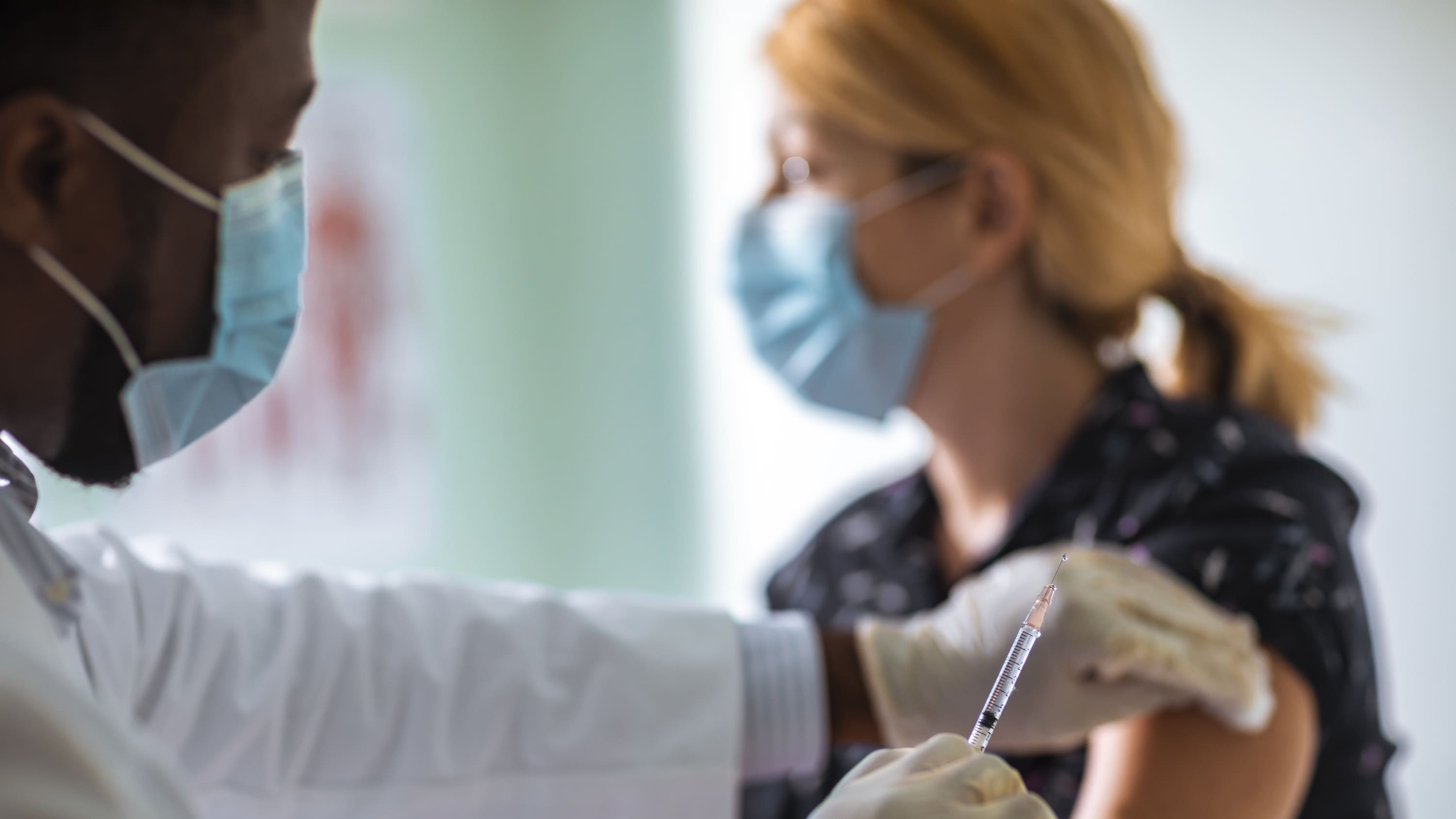To Boost or Not to Boost, That is the Question...
"If we'd been out of the worst of the pandemic now and we'd gone into a spring lull, we wouldn't be doing fourth doses.""[Do we keep vaccinating every few months?] I suspect we're going to lean toward once a year soon, as we go into more of a steady state, we hope."Tanis Watts, immunologist, University of Toronto"In the meantime, there are many, many questions about whether the declining levels of antibodies [with current vaccines] are an indication of the entire potential immune system response.""So, in the absence of that we're just looking at waning antibodies. How many people further out from their third dose are starting to show up with new infections?""[Priority for second boosters is being given to the most vulnerable], immunocompromised people for sure. People in long-term care for sure. And anybody who hasn't had their third shot [and who is eligible] should really get it.""But I think what's going to happen is we're going to watch over time and see if we can get through the spring and summer reasonably, so that then any kind of fourth dose strategy would be timed for when we go into the big respiratory season in fall."Dr.Catherine Hankins, co-chair, Canada's COVID-19 immunity task force, professor of medicine, McGill University"[Regardless of the dosing intervals], planning should take into account that vaccine deployment may be required for broader population groups in the fall of 2022 [depending on where the pandemic goes next].""[For now, with public health measures lifting and BA.2 spreading], there continues to be a high burden of disease."National Advisory Committee on Immunization
 |
| The Atlantic |
Omicron, the variant of Delta, which proved to be even more infectious than its predecessor, albeit without the grim consequences to the infected, has now mutated itself and its variant, BA.2 is beginning to replace Omicron as the new dominant sub-strain of SARS-CoV-2, plaguing the world community. In Ontario, just signed off on a fourth dose of COVID-19 vaccines for those over 60, the situation of an expanding infectiousness with up to 100,000 new infections daily, was foreseen when the province lifted its mask mandate.
By fall, speculation is that Canada in its entirety may realize a massive second booster rollout. Yet another booster in response to the ever-resurgent pathogen has many people concerned over how many rounds of booster shots will be required to gain some control over the threat of ever-more infectious virus strains? Facing a sixth wave of infections threatening to overwhelm hospital systems which have themselves seen a boost in their facilities and capabilities; with the BA.2 wave surging, populations have been left with a dire case of deja vu.
The not-quite surprising, but surely extremely disappointing situation which has led Canada's panel of vaccine advisers to recommend jurisdictions make preparations "for the rapid deployment" of a second booster over the coming weeks, giving priority to people 80 and older, residents of long-term care and seniors' homes has the sad ring of familiarity. Adults under 70 in or from First Nations, Metis or Inuit communities should also be added to second-booster priorities, noted the National Advisory Committee on Immunization.
A first booster; third dose of an mRNA vaccine, is roughly 60 percent protective against infection and symptomatic COVID, according to NACI; symptoms such as fever, headache and other physical issues signalling the presence of COVID. That third dose is also 78 percent protective against severe illness, a protection that, unfortunately wanes over time. At present limited evidence on the feasible efficacy of a second booster is available.
Most data arises from studies conducted in Israel, where one preprint indicated that seniors who received a second booster of Pfizer's vaccine experienced a 78 percent lower death rate than those who had just the initial booster. The New England Jouranal of Medicine recently published a second study which found the rate of severe COVID following a fourth dose to be lower than the three-dose group by a factor of 3.5; from a base of 1.2 million Israelis, aged 60 and over.
Fourth vaccine doses have been approved in the United States for Americans between the ages of 50 and up; a decision that has raised much controversy there among a population tired of the entire issue. In the Omicron strain the spike protein that sticks to and enters human cells is not as vulnerable to the immune system buildup of the original mRNA vaccines, as a result of the mutation that makes it far more transmissible.
A pan-SARS-CoV-2 vaccine is in the works, one that would give better protection against all variants.
According to the European Medicines Agency, no safety concerns have emerged from studies related to added boosters, though the Agency resisted recommendations of fourth doses universally.
 |
| Photo: Getty Images |
Labels: BA.2, Infectiousness, Omicron, Second Booster, Waning Antibodies

0 Comments:
Post a Comment
<< Home